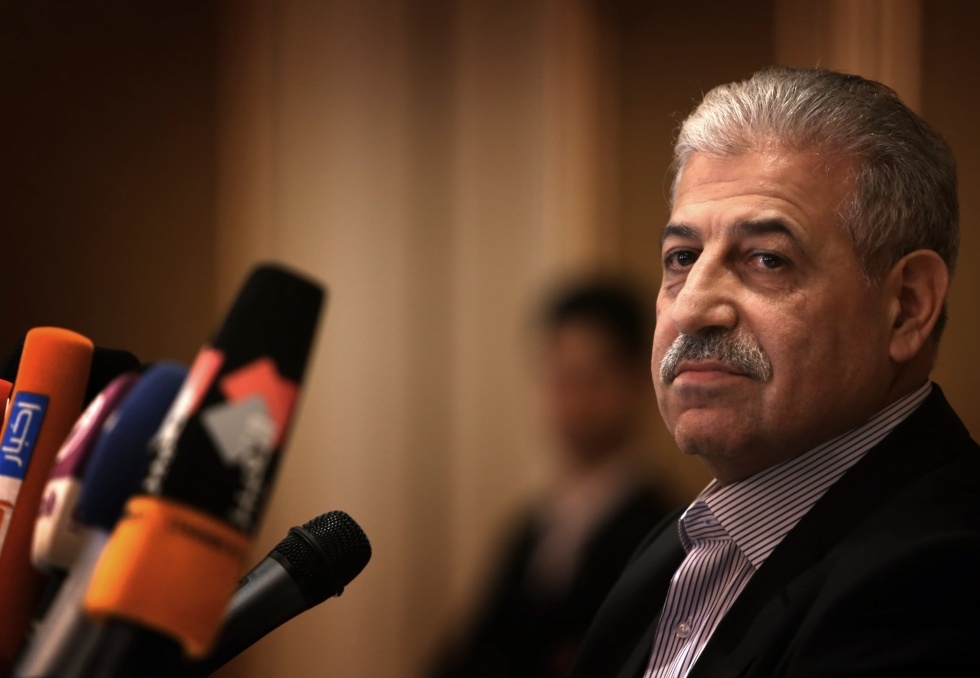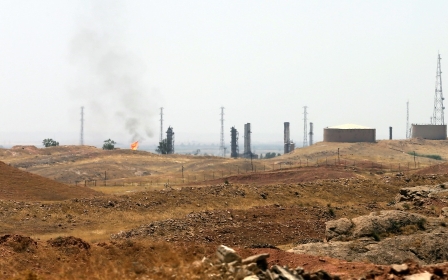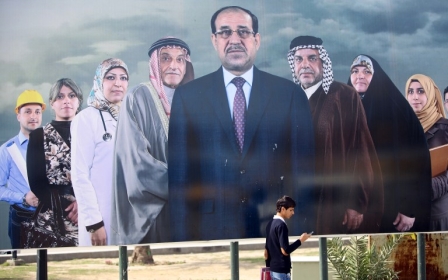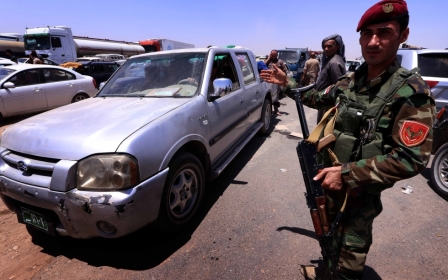Islamic State issues wages to government employees in Mosul

The Islamic State - the militant group that rebranded itself Monday from the Islamic State of Iraq and the Levant (ISIL) - distributed wages to government employees in Mosul Wednesday.
Government employees who spoke to the Turkish agency Anadolu said that “militants belonging to the Islamic State (IS) today distributed wages to employees in the town, after scrutinising official documents like work cards.”
Iraq’s cabinet announced on 24 June that the salaries of government employees in areas under IS control are being suspended until the end of hostilities.
The wages of “employees in areas not subject to government control” are being withheld, to be distributed after military operations are completed, according to a cabinet statement.
Mosul has officially been outside government control since 10 June, when militants from the group - then known as the Islamic State in Iraq and the Levant - seized the town.
Those working in areas under militant control may not have been receiving their salaries for weeks, due to difficulties on the ground, reports AFP.
Joel Wing, an Iraq specialist, told MEE that the Islamic State is “different from its predecessors in that it truly sees itself as an operating state.”
“Soon after IS took over Mosul, it called on public employees to return to their jobs, and it quickly became apparent that the group wanted to administer the city as it does areas in Syria like Raqqa.”
The amount distributed to workers by IS was reportedly around 60 percent of what the government used to pay, with rates of pay determined on the basis of the employee’s marital status, qualifications and transport costs.
“IS has a huge amount of money, so paying people in Mosul should be within its means,” explained Wing.
An Iraqi official hinted that the embattled country could be upping its military spending, after deciding not to pay wages for government workers.
The Iraqi ambassador in Washington spoke on Wednesday of his country’s willingness to buy military equipment from either Iran or Russia in a bid to put an end to the militant insurgency.
Lukman al-Faily told an audience at the Carnegie Endowment for International Peace that Iraq is prepared to buy arms from Russia or Iran, despite international sanctions that prohibit the purchase of military equipment from Tehran.
‘A state within a state’
A merchant who fled from Mosul after attacks intensified spoke to pan-Arab daily al-Hayat on condition of anonymity.
He told the site that the Islamic State had been present in the city for the past ten years, acting as “a state within a state.”
Wing agrees, explaining that Mosul was the group’s “money maker in Iraq for years”, smuggling oil and kidnapping for ransom as well as more banal activities, like running front companies and charging taxes on imports into Nineweh province.
Athil al-Nujaifi, governor of Nineweh province, told the parliament’s session on Monday that Mosul’s fall had been coming “for years”, partially as a result of ISIL being allowed to run extortion rackets and sell siphoned oil.
According to the Nujaifi, a businessman who was elected governor in 2009, corruption by army officers in the city was behind Mosul’s official fall to militants on 10 June.
He also blamed neglect by both American forces and the Iraqi administration of extortion rackets run by Islamic State militants in Mosul.
Maliki “refused to listen to the facts presented to him, relating to the implication of top intelligence officers in easing the group’s work in Mosul, and siphoning off oil from Ain al-Jahesh”, a village 60 kilometres south of Mosul.
Meanwhile, Nujaifi himself was accused by Sheikh Muhammad al-Buaj, a prominent cleric in Nineweh province, of “fleeing Mosul” towards Kurdistan as soon as militant attacks hit on Wednesday.
Paralysis in parliament
As violence rumbles on and militants appear to be taking on a semi-state role in Mosul, Iraq’s political paralysis continues.
Iraq’s parliament met on Tuesday for the first time since its election on 30 April amid heightened security in the capital Baghdad.
The aim of the session was to elect a new speaker and deputy speaker for the house, which would have allowed the process of selecting a new prime minister to go ahead.
The session managed to attract the necessary number of representatives for a legitimate sitting.
However, the meeting swiftly descended into a shouting match, with a Kurdish MP being accused of “treachery” after asking a question about payments from Baghdad to the autonomous region of Kurdistan that are allegedly still unpaid.
After an unscheduled recess an hour into the sitting, Kurdish and Sunni blocs withdrew their representatives, meaning that the session could not continue.
The parliament has still not been able to approve a draft budget for 2014.
New MEE newsletter: Jerusalem Dispatch
Sign up to get the latest insights and analysis on Israel-Palestine, alongside Turkey Unpacked and other MEE newsletters
Middle East Eye delivers independent and unrivalled coverage and analysis of the Middle East, North Africa and beyond. To learn more about republishing this content and the associated fees, please fill out this form. More about MEE can be found here.




